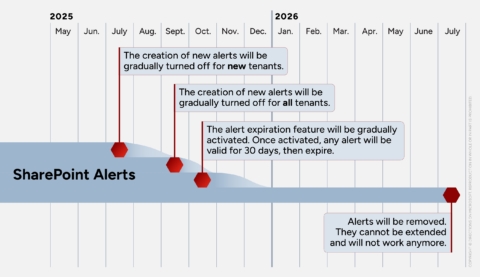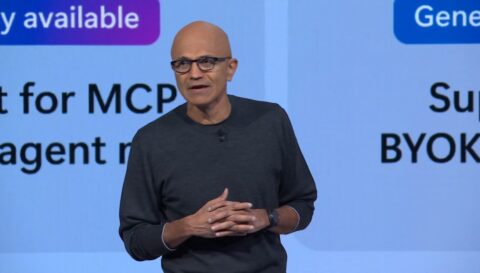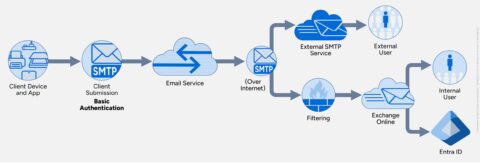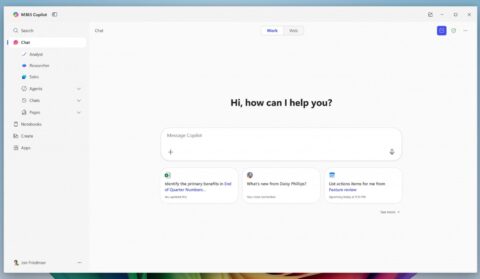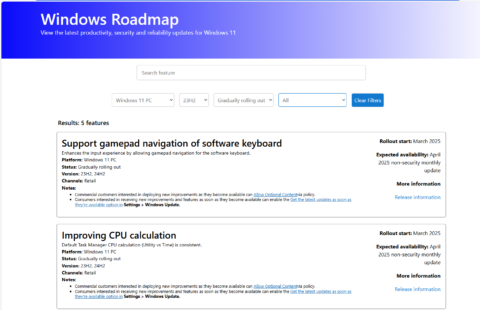Updated: April 30, 2025 (April 30, 2025)
BlogMicrosoft: European customers can count on us

Calls for European countries and customers to reduce their reliance on the biggest U.S. cloud providers seem to have hit a nerve in Redmond. On April 30, Microsoft announced five new digital commitments meant to reassure European customers that Microsoft has their back, in spite of the chaos caused by the current U.S. government regime with tariffs, regulation, threats over data access and more.
As enterprises know, it’s not a trivial matter to switch clouds or try to repatriate workloads and apps from the cloud back to on-premises. It’s one thing to talk about reducing dependencies on U.S. tech providers and build alternative European-owned/run “Eurostacks.” But it’s another to put these kinds of plans into action. Microsoft officials know how difficult and expensive it is for customers to untangle themselves from Microsoft’s cloud once they’ve bought in.
Whether Microsoft’s new commitments are more theatre or reality, these promises come with a number of questions.
Build out or scale back? Which is it?
On April 30, Microsoft pledged to increase its European datacenter capacity by 40% over the next two years and promised to expand datacenter operations in 16 European countries. This means Microsoft will “more than double our European datacenter capacity between 2023 and 2027,” and enable Microsoft to offer cloud services in more than 200 datacenters in Europe, according to Microsoft president Brad Smith.
Smith and other Microsoft officials didn’t provide a list of the countries or share details on the costs of the planned expansion. They also didn’t explain how this expansion will jibe with the company’s recent moves to slow its previously announced AI and datacenter buildouts worldwide. In spite of its pull backs, Microsoft has continued to promise it will spend $80 billion on its datacenter infrastructure in fiscal 2025 (which ends June 30, 2025) and somewhat less in fiscal 2026.
Smith also touted its partnership with smaller European cloud providers, via which Microsoft is enabling smaller hosting providers to deliver Microsoft apps and services on their local infrastructure under “more favorable terms than we make available to Amazon and Google.” Smith did not mention that Microsoft’s planned build out of its own datacenters might negatively affect the businesses of its smaller local provider partners.
Smith did note that Microsoft is working on building more sovereign cloud datacenters and partnerships, which enable foreign governments and customers to run Azure in Microsoft’s public cloud datacenters with extra levels of encryption, administration and residency provisions. He cited the Bleu joint venture involving Microsoft, Capgemini and Orange, which enables Bleu customers to operate under French control, as well as another sovereign partnership in Germany involving Microsoft, SAP subsidiary Delos Cloud GmBH, and Bertelsmann IT subsidiary Arvato Systems, as examples of what Microsoft envisions in this space.
He added that Microsoft will store back-up copies of our code in a secure repository in Switzerland and provide its European partners with the legal rights needed to access and use this code if needed.
Microsoft: ‘We’re prepared to go to court’
Smith also said if any government ordered the company to suspend or cease offering cloud services in Europe, Microsoft would “promptly and vigorously contest such a measure using all legal avenues available, including by pursuing litigation in court.” Smith cited Microsoft’s “strong legal track record” in upholding the rights of its customers.
But this promise only holds so far as the U.S. judicial system continues to operate lawfully. There have been signs that the Trump administration believes it is not beholden to follow rulings of various courts on a variety of topics. Smith did not address what would happen if the Trump administration simply ignores court-ordered actions around datacenter operations in Europe.
“This is a good statement for customers,” said Directions on Microsoft analyst Wes Miller, “but we’ll have to see what the company actually delivers before customers can truly know how strongly Microsoft stands behind their words.”
Related Resources
Microsoft announces new European digital commitments
Microsoft president says company respects European laws amid US criticism
Cloud Repatriation: A Directions on Microsoft podcast
Microsoft Licensing for non-Microsoft clouds: A Directions on Microsoft podcast






